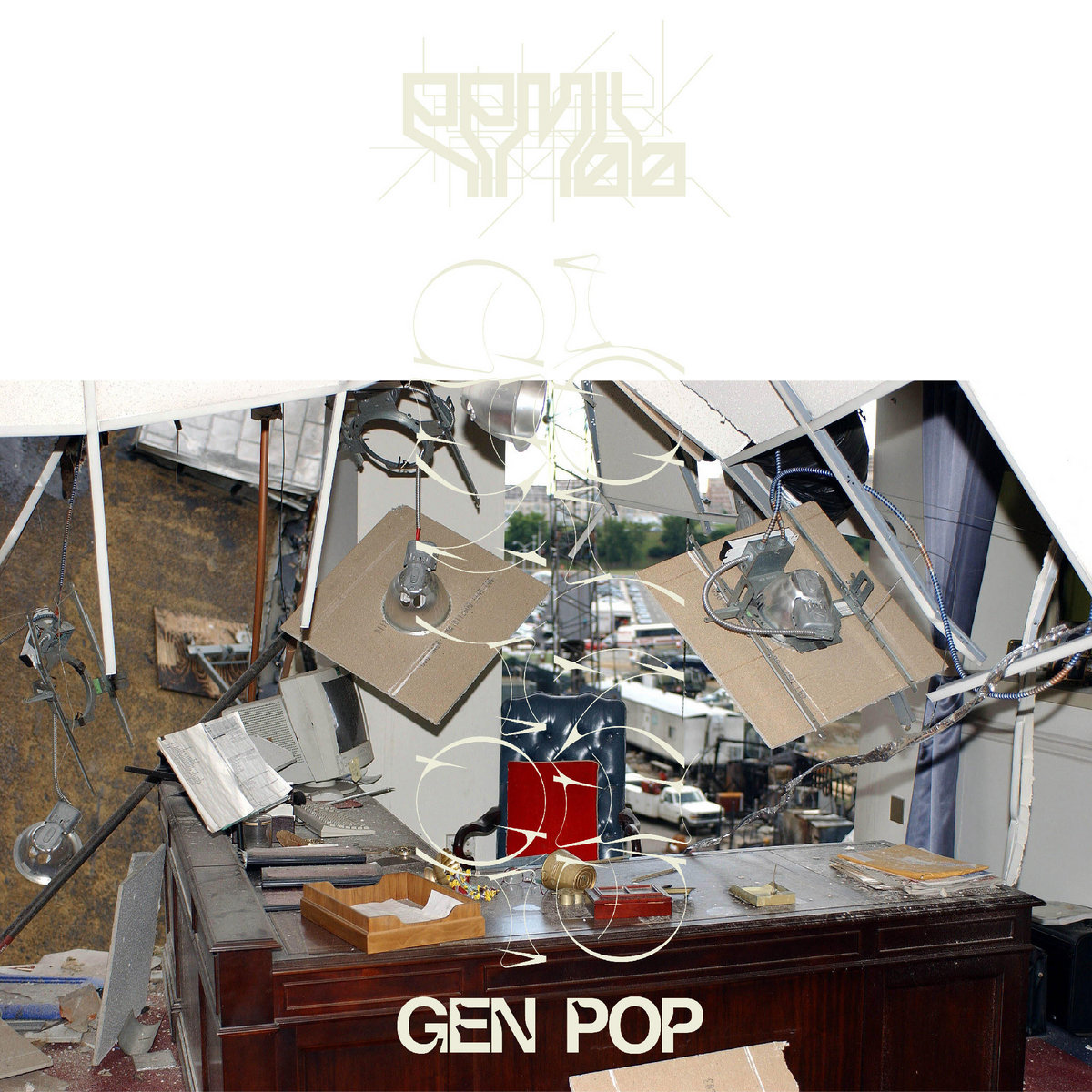Gen Pop: What It Means & How It's Used [Slang Guide]
Ever found yourself scrolling through social media, baffled by a term seemingly everyone else understands? It’s increasingly likely that term is “gen pop,” a phrase with roots in the prison system that has permeated mainstream culture. But what does it really mean, and how has it evolved from behind bars to our everyday lexicon?
“Gen pop,” short for general population, originally and fundamentally refers to the main body of prisoners within a correctional facility who are not segregated into specialized housing units. These units often include solitary confinement, protective custody, or medical wings. In its primary context, “gen pop” describes the largest group of inmates living under standard prison conditions. This environment is often characterized by a complex social hierarchy, strict rules, and potential for violence. Within the walls, “gen pop” signifies a world of its own, governed by its own set of unspoken laws and power dynamics. Survival and adaptation within this environment often hinge on understanding and navigating these intricacies.
Outside of prison, particularly in online and media discourse, “gen pop” has taken on a broader, more figurative meaning. It's often used to denote "the mainstream" or the average person. This usage carries a subtly different connotation, sometimes implying a lack of individuality or conformity to popular trends. This metaphorical application highlights the power of language to shift and adapt as it migrates between different social contexts. The term's journey from the stark reality of prison life to the fluid world of online slang underscores the evolving nature of language and its ability to reflect and shape cultural perceptions.
- Daniel Barlow Height The Real Story Behind The Iconic Singer
- Where Is Patrizia Gucci Now The Untold Story Of Fame Fortune And Redemption
The term isn’t always neutral; it can be used in a derogatory or sarcastic way to describe someone deemed uncool, unintelligent, or lacking independence. Imagine someone rolling their eyes and saying, "Oh, that's so gen pop," implying something is basic or unoriginal. The inherent negativity in this usage reflects a common desire to distinguish oneself from the perceived mediocrity of the masses. This judgmental application highlights the term's potential for social stratification, creating an "us versus them" mentality based on perceived differences in taste, intelligence, or originality.
Understanding the multiple layers of "gen pop" requires acknowledging its origins, its evolution, and its potential for both descriptive and judgmental use. Recognizing its different meanings helps us navigate social interactions and interpret the nuances of online and offline communication. This adaptability and diverse application solidify its place in the ever-changing landscape of modern slang, cementing its status as a term with considerable cultural weight.
Generation Z, often called Gen Z, is the demographic cohort succeeding Millennials and preceding Generation Alpha. Researchers and popular media use the mid-to-late 1990s as starting birth years and the early 2010s as ending birth years. Most members of Generation Z are children of Generation X.
- Only Curls The Ultimate Guide To Embracing Your Natural Hair Journey
- Amanda Abbington Partner Accident The Inside Scoop You Need To Know
Slang used by Generation Z (Gen Z; generally those born between 1997 and 2012 in the Western world) differs from slang of earlier generations. Ease of communication via internet social media has facilitated its rapid proliferation, creating an unprecedented variety of linguistic variation.
Within the prison system, the realities of "gen pop" life are stark. Overcrowding, limited resources, and the constant threat of violence create a challenging environment. The social hierarchy is often based on strength, affiliations, and the ability to navigate complex power dynamics. Subcultures emerge within this environment, often defined by race, gang affiliation, or shared experiences. Understanding these subcultures is critical for both inmates and correctional officers to maintain order and survive within the system.
Living in the "gen pop" unit presents both advantages and disadvantages. On one hand, it offers opportunities for social interaction, access to resources, and a sense of community. On the other hand, it exposes inmates to a higher risk of violence, exploitation, and the negative influences of prison culture. The classification of "gen pop" prisons further influences the living conditions and the level of security within these facilities. Different classifications correspond to varying levels of restriction, supervision, and rehabilitation programs, each impacting the daily lives of inmates.
Beyond prison and social media, “gen pop” occasionally surfaces in other contexts, such as schools or public places, but these uses are less common. More often than not, it remains firmly rooted in either its original prison meaning or its modern slang interpretation, influenced by the rapid-fire communication styles of Gen Z. This demonstrates how a term's meaning can remain tethered to its origins even as it spreads and evolves in new environments.
Population genetics software, such as Genepop, developed by Michel Raymond and Francois Rousset, play a crucial role in understanding genetic diversity and evolutionary processes within populations. This software is used by researchers to analyze genetic data, study population structure, and investigate the impact of factors like gene flow and genetic drift. These tools provide valuable insights into the mechanisms that shape the genetic makeup of populations over time.
From Florence Pugh to Lil Nas X, Gen Z stars are undeniably shaping pop culture today. Their influence extends beyond entertainment, impacting fashion, social activism, and the way we communicate. They represent a generation that is tech-savvy, socially conscious, and unafraid to challenge norms, leaving an indelible mark on the cultural landscape. These figures embody the spirit of Gen Z, driving trends and inspiring change across various facets of society.
The term “gen pop” has even found its way into merchandise, such as “Not Gen Pop” challenge coins and shirts, further solidifying its place in popular culture. These items often serve as a statement of individuality, reflecting a desire to stand out from the crowd and reject mainstream trends. The use of "gen pop" in this context underscores its cultural significance, indicating its widespread recognition and its potential as a symbol of rebellion against conformity.
The evolution of "gen pop" illustrates the dynamic nature of language, its ability to adapt and reflect the ever-changing social landscape. From its origins in the prison system to its widespread use in online slang and popular culture, the term has taken on multiple meanings and connotations. Understanding these nuances is crucial for effective communication and navigating the complexities of modern society.
This page was last edited on 10 August 2024, at 12:08.
In conclusion, "gen pop" is a fascinating example of how language can evolve and adapt to new contexts. Its journey from a specific prison term to a widely used slang expression reflects the ever-changing dynamics of culture and communication. By understanding the different meanings and connotations associated with "gen pop," we can better navigate the complexities of social interaction and appreciate the power of language to shape our perceptions of the world.



Detail Author:
- Name : Alia Ferry IV
- Username : mrutherford
- Email : ressie27@sanford.com
- Birthdate : 2006-08-10
- Address : 2266 Sibyl Way Suite 663 Larsonside, NC 69648
- Phone : (323) 205-5093
- Company : Walter, Stracke and Klein
- Job : Ticket Agent
- Bio : Non rerum quam omnis voluptatibus saepe. Non harum fugit eveniet adipisci rerum voluptas eius atque. Saepe dicta ut quia harum.
Socials
instagram:
- url : https://instagram.com/tannerruecker
- username : tannerruecker
- bio : Harum qui optio et nobis esse non dolor. Modi ut dignissimos fugit id ut. Et et amet ipsum.
- followers : 3605
- following : 2022
tiktok:
- url : https://tiktok.com/@ruecker1995
- username : ruecker1995
- bio : Ducimus facilis exercitationem quasi suscipit autem.
- followers : 5506
- following : 625
twitter:
- url : https://twitter.com/tannerruecker
- username : tannerruecker
- bio : Ad sint illum id dolor officia. A quam eligendi excepturi cumque. Deserunt soluta magni inventore qui.
- followers : 2856
- following : 2651
facebook:
- url : https://facebook.com/tanner.ruecker
- username : tanner.ruecker
- bio : Asperiores suscipit corporis ad aspernatur numquam.
- followers : 2093
- following : 1622